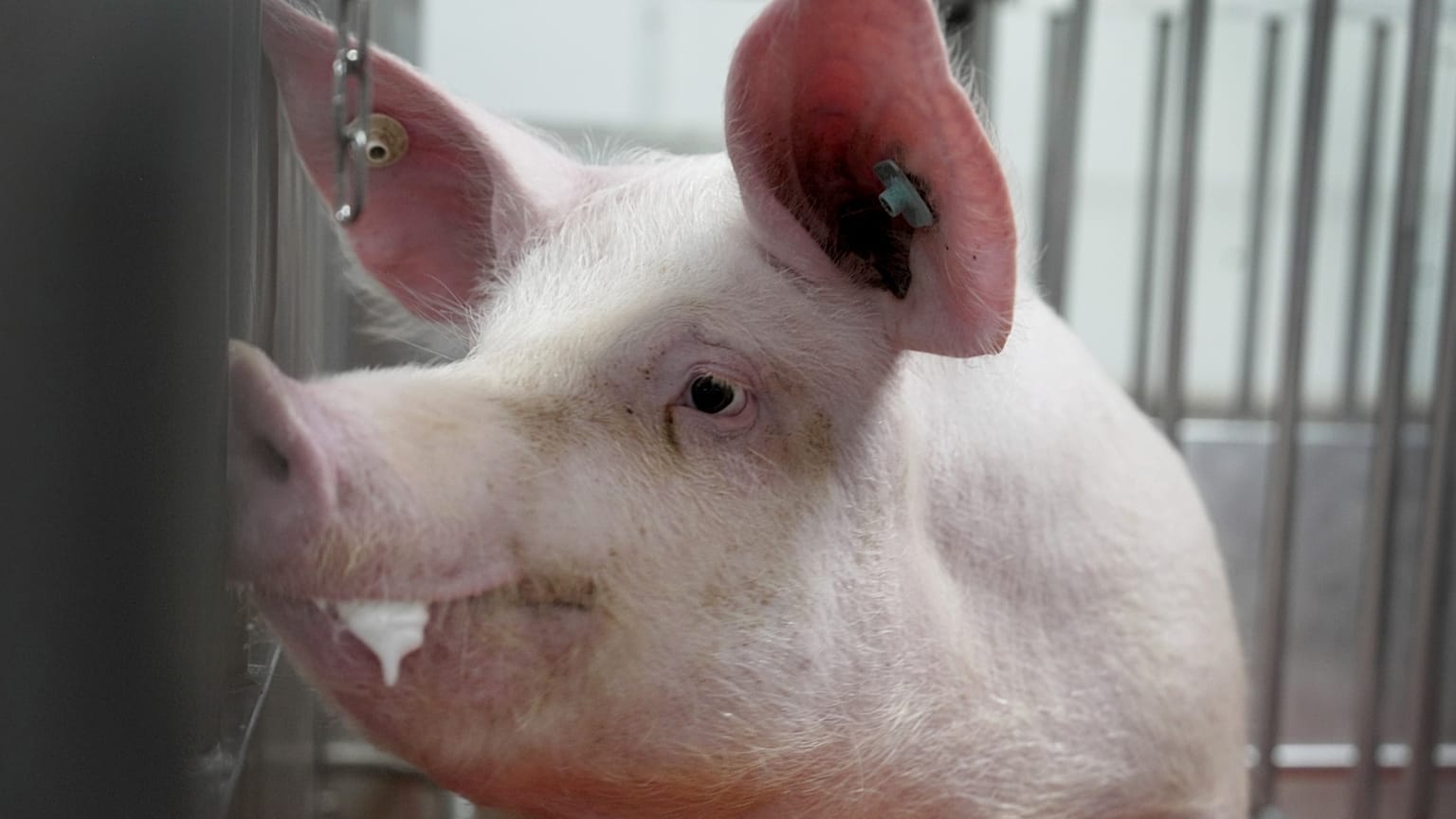Science
Groundbreaking Trial Begins for Pig Kidney Transplants in Humans

A pioneering clinical trial has commenced in the United States to assess the viability of transplanting pig kidneys into human patients. This innovative research, led by United Therapeutics, marks a significant milestone in the field of xenotransplantation, the process of transferring organs from one species to another. The initial transplant was successfully conducted at NYU Langone Health in New York City, with further details about the surgery and the patient withheld to maintain confidentiality.
The trial aims to involve six participants initially, with plans to expand to as many as 50 individuals as additional transplant centers join the effort. Dr. Robert Montgomery, who headed the transplant team at NYU, expressed optimism regarding the study. He mentioned that the hospital has a list of potential candidates eager to participate in this groundbreaking research.
The United States Food and Drug Administration (FDA) has granted permission for this rigorous study following a series of “compassionate use” cases that yielded mixed results. Previous attempts at gene-edited pig kidney transplants provided limited success. For instance, the first two transplants were short-lived, prompting researchers to focus on patients who required a kidney but were not critically ill.
One notable case involved a woman whose transplanted pig kidney functioned for 130 days before she had to resume dialysis. Another patient, a man at Massachusetts General Hospital, set a new record with a pig kidney that lasted 271 days before the organ began to decline, necessitating its removal last month.
The urgency for alternative kidney sources is underscored by the staggering statistics: over 100,000 individuals in the United States are currently on the transplant list, with thousands succumbing while waiting for a suitable organ. In Europe, more than 10,000 patients are similarly situated, as reported by the Eurotransplant International Foundation, which oversees organ donations across several countries.
To enhance the compatibility of pig organs with human recipients, researchers are genetically modifying pigs. The trial by United Therapeutics is examining kidneys with 10 gene edits that aim to eliminate pig genes associated with immediate rejection and excessive organ growth. Additionally, some human genes are introduced to improve the likelihood of acceptance by the human immune system.
As the trial progresses, the research team remains hopeful about the future of xenotransplantation. Dr. Montgomery noted that the ability to return to dialysis offers a safety net for patients, allowing them to manage their health while participating in this groundbreaking study. The results of this clinical trial could pave the way for a revolutionary approach to organ transplants, potentially saving countless lives in the process.
-

 Top Stories2 months ago
Top Stories2 months agoTributes Surge for 9-Year-Old Leon Briody After Cancer Battle
-

 Entertainment3 months ago
Entertainment3 months agoAimee Osbourne Joins Family for Emotional Tribute to Ozzy
-

 Politics3 months ago
Politics3 months agoDanny Healy-Rae Considers Complaint After Altercation with Garda
-

 Top Stories3 months ago
Top Stories3 months agoIreland Enjoys Summer Heat as Hurricane Erin Approaches Atlantic
-

 World4 months ago
World4 months agoHawaii Commemorates 80 Years Since Hiroshima Bombing with Ceremony
-

 Top Stories2 months ago
Top Stories2 months agoNewcastle West Woman Patricia Foley Found Safe After Urgent Search
-

 Top Stories4 months ago
Top Stories4 months agoFianna Fáil TDs Urgently Consider Maire Geoghegan-Quinn for Presidency
-

 World4 months ago
World4 months agoGaza Aid Distribution Tragedy: 20 Killed Amid Ongoing Violence
-

 World4 months ago
World4 months agoCouple Convicted of Murdering Two-Year-Old Grandson in Wales
-

 World4 months ago
World4 months agoAristocrat Constance Marten and Partner Convicted of Infant Murder
-

 Top Stories3 months ago
Top Stories3 months agoClimbing Errigal: A Must-Do Summer Adventure in Donegal
-

 Top Stories3 months ago
Top Stories3 months agoHike Donegal’s Errigal Mountain NOW for Unforgettable Summer Views









